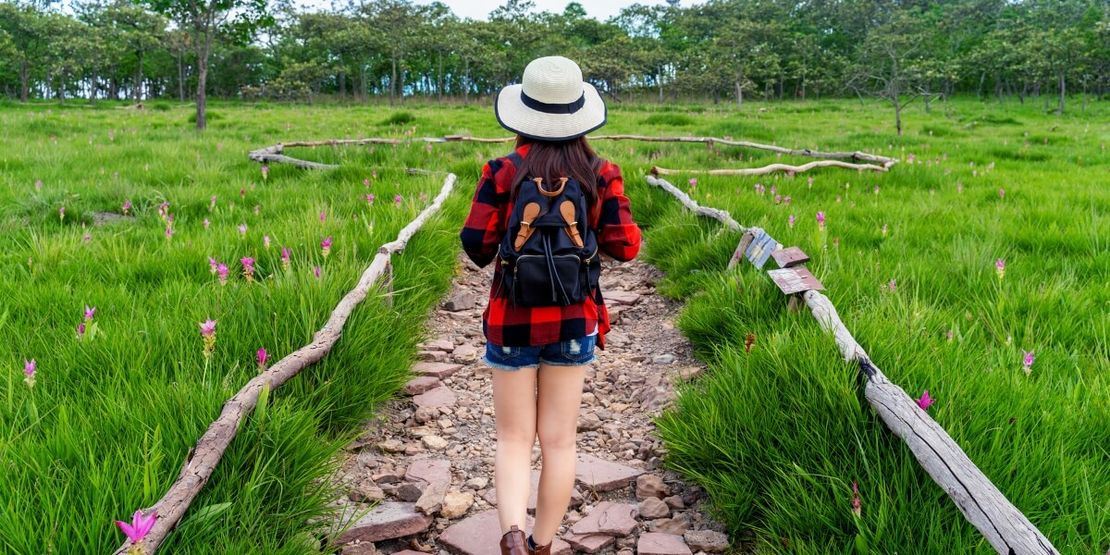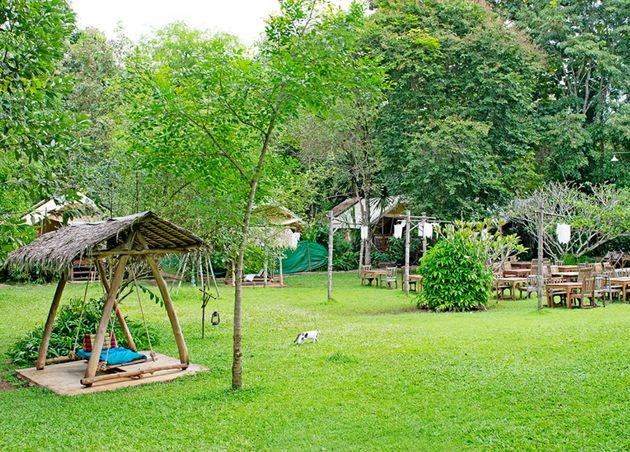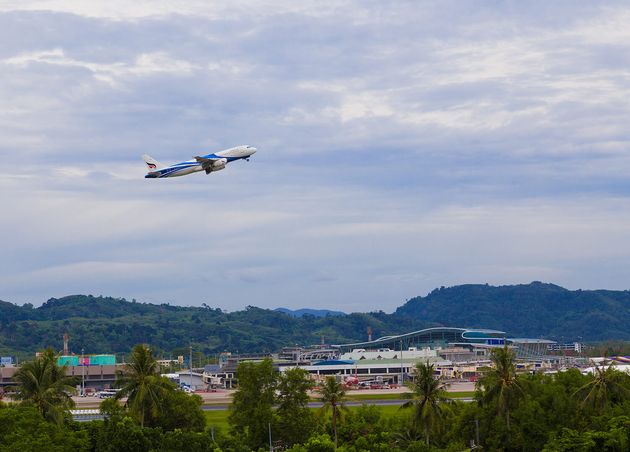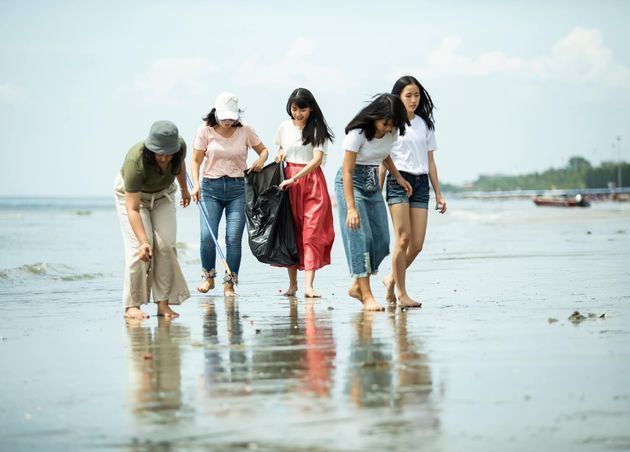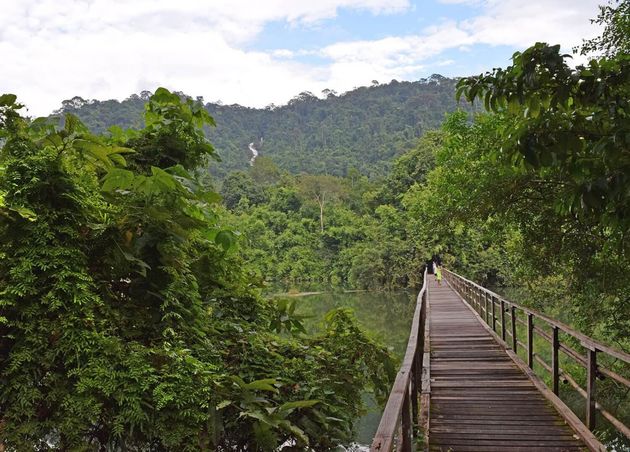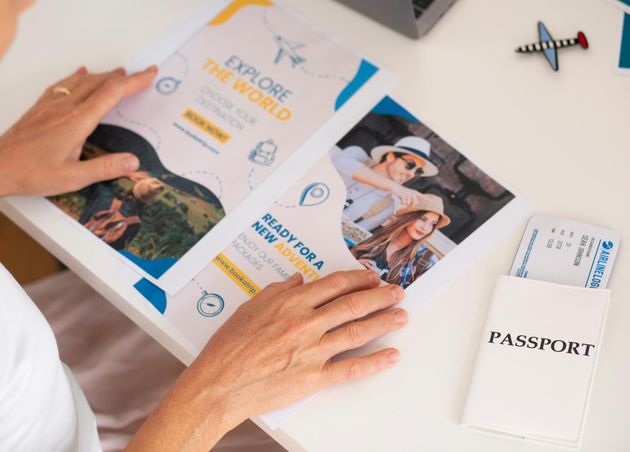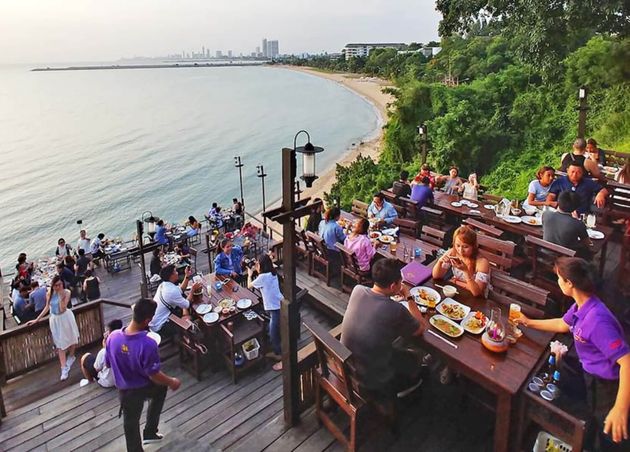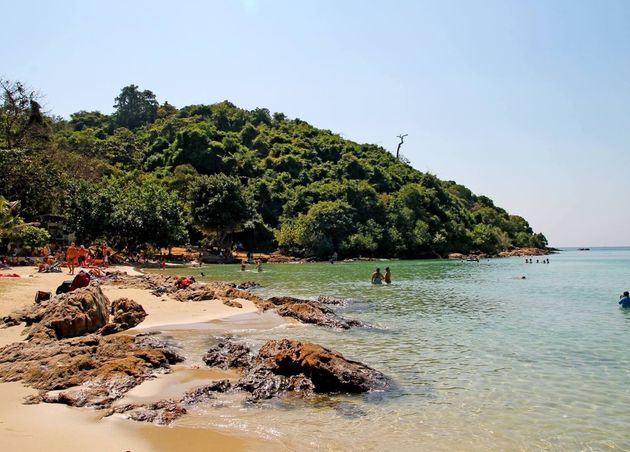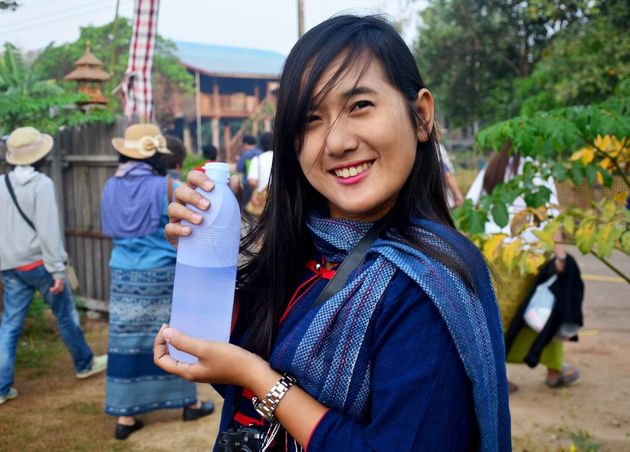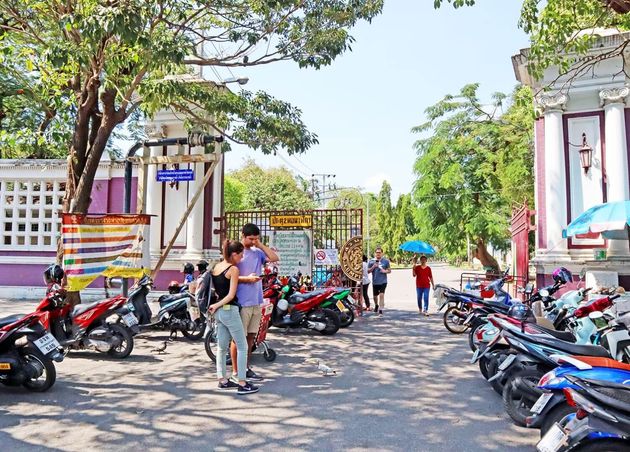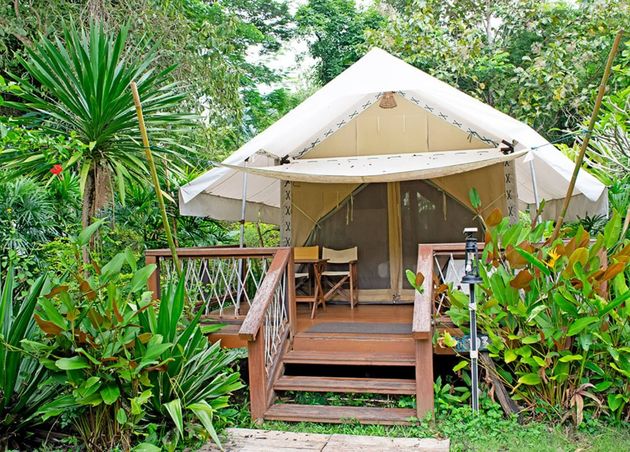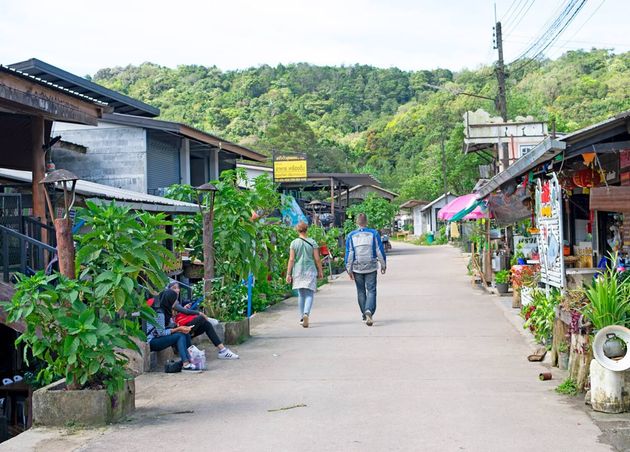Top 10 Helpful Tips for Thailand Eco-Friendly Travel
Eco-friendly travel isn’t just a trend—it’s essential 🐻 These days, many of the world’s top tourist spots are packed with visitors, and while that’s great for exploring, it’s not so great for the environment.
With more people traveling, more resources are being wasted, and nature takes a hit. But, by making a few smart choices, we can all do our part to travel in a way that helps preserve these incredible destinations. Flights are cheaper than ever, which means more travelers are taking to the skies. The downside? Airports are overcrowded, especially during the high season, with massive environmental impact.
But here’s the thing: flying is often unavoidable. What matters is how you travel once you’ve landed 🇹🇭 There are plenty of ways to cut down your impact on the environment and make your trip more sustainable.
Eco-Friendly Tips for Your Thailand Travel
As someone who’s always looking for ways to travel smarter and leave a lighter carbon footprint, I’ve pulled together my top 10 tips to help make your Thailand adventure both memorable and sustainable 🐻 From offsetting the carbon from your flights to supporting local businesses; these tips will guide you through a more eco-friendly journey in the Land of Smiles.
Whether you're hitting the beach, trekking through the jungle, or diving into Thai culture, weaving these eco-conscious practices into your itinerary won’t just shrink your carbon footprint—it’ll actually make your experience richer. By embracing sustainable travel, you’ll discover Thailand’s natural wonders while giving back to the local communities and helping protect the environment for future travelers.
Here are my top 10 tips for traveling greener in Thailand—and trust me, this is just the start.
#10 Reduce Your Carbon Footprint When Flying
Let’s be real—as I mentioned earlier, sometimes flying is unavoidable. But if you’re going to fly, do it smart. Opt for the shortest direct flights whenever possible, even if they cost a bit more. Why? Fewer connections mean fewer emissions. On average, a direct flight emits about 100 kg less Carbon dioxide (CO2) per person than one with layovers. That’s a solid win for the environment.
Want to take it a step further? You can offset your carbon emissions through platforms like Atmosfair, Climate Collections, or Myclimate. It’s simple: calculate how much CO2 your flight generates, then purchase certificates that fund climate protection projects, like reforestation or renewable energy.
For example, offsetting a short-haul flight in Europe can cost around 6 to 10 USD (200-340 THB)—not much when you think about the long-term impact. Need more guidance? Check out my other article on How to Measure Your Carbon Footprint.
That said, offsetting isn’t perfect. Some projects, like forestry schemes, may overestimate their benefits. So, think of carbon offsetting as just one piece of a bigger puzzle. Combine it with other sustainable practices, like choosing eco-friendly accommodations and supporting local businesses, and you’re making a real difference.
Curious to learn more? Check out platforms like Myclimate (https://www.myclimate.org/) for details. Remember, every small step counts. Just go for it—your future self and the planet will thank you!
#9 Get Involved in Local Conservation Efforts
If you really want to make your trip to Thailand count, why not get your hands dirty and join a local conservation project? Whether it’s a beach clean-up or volunteering for a wildlife preservation effort, you’ll be doing something that goes beyond just sightseeing.
You’ll be helping protect the environment and learning about it firsthand from the people who live there. Ask around at your accommodation or look up reputable organizations. You’ll leave with more than just memories—you’ll leave knowing you played a part in keeping Thailand’s natural beauty intact.
#8 Explore National Parks and Protected Areas Responsibly
Thailand’s national parks and protected areas aren’t just there for a nice photo op—they’re essential for protecting endangered species and fragile ecosystems. And the entry fees you pay? They go directly into conservation efforts and supporting local communities.
So when you visit, especially the famous national parks in Thailand, remember: it’s not just about the experience; it’s about helping ensure these places stick around for the next generation. And yeah, clean up after yourself—let’s leave no trace behind.
#7 Ditch the Paper Travel Catalogs
Here’s something we can all do easily: stop wasting paper on travel catalogs. Most travel agencies offer their packages online these days, so there’s no need to flip through a stack of brochures that’ll just end up in the trash.
Go digital—it’s faster, easier, and way better for the planet. Less clutter, less waste.
#6 Support Local, Skip the Big Chains
Tourism is big business, but way too much of the money may go straight to big corporations. Meanwhile, local communities barely see any of it. Want to make a real impact? Eat at local restaurants, sleep at family-owned accommodations, and take public transportation.
Not only is it more eco-friendly, but you’ll also get a more authentic experience. Plus, every penny you spend goes back into supporting local culture and businesses, helping keep them alive for future generations. It’s a win-win.
#5 Pack Smart, Pack Light
Let’s talk about packing. It might seem like a small thing, but how much you bring can have a big impact. The more luggage you carry, the more fuel it takes to move it, and that means higher carbon emissions.
So, pack wisely. Instead of buying full-size grooming items every time you travel, grab travel-size containers and refill them from home. Better yet, opt for solid shampoos and soap bars—less waste, no fuss. And skip the single-use plastics like straws and cutlery. Traveling with a lighter backpack not only shrinks your carbon footprint but also makes life easier on the road.
#4 Take it Slow
Slow travel isn’t just a trend—it’s a smarter way to experience a place. Instead of hopping from one destination to the next, stay longer at each stop. You’ll save on transportation costs, reduce your carbon footprint, and get the chance to truly immerse yourself in the local culture.
Plus, it’s a lot less stressful. No more rushing from place to place—just take it easy, enjoy the ride, and make the most of where you are. Trust me, it’s definitely a better way to travel.
#3 Carry Reusable Items
Staying hydrated and caffeinated on the go is key, not because I love coffee, but it's just that doing it right is even better. Too many travelers forget to pack a reusable water bottle or coffee mug and end up relying on disposable cups and plastic bottles, which only add to the waste problem. And in some remote spots, there’s no proper waste disposal, so that trash just piles up.
The fix is easy: carry your own water bottle and coffee mug. Not only are you saving the environment, but it’s also a smarter, more economical move. You can refill anywhere, and by saying no to single-use plastics, you’re making a big difference. It’s a simple habit with a big payoff—just the way I like it.
#2 Choose the Right Means of Transport
Sure, flying gets you where you need to go, but when you’ve landed, think about how you move around. If you can, take a bus or train instead of another flight.
Once you’re at your destination, look for ways to explore that don’t burn a ton of fuel—public transport, motorbikes, or even better, biking and hiking. Not only do you save resources, but you also get closer to the local culture and people.
And let’s be honest, things like horseback riding, canoeing, and cycling aren’t just eco-friendly—they’re fun. It’s a win-win. Plus, it's the kind of travel that lets you slow down and really experience the place you’re in.
#1 Live Climate-Friendly, Travel Eco-Friendly
If you’re taking a flight for your holiday, the choices you make when you land matter just as much as how you get there. Instead of staying in a big hotel, think about camping or renting a smaller, locally-owned place. It’s not only more sustainable, but it also gives you a more personal, grounded experience.
Bring reusable items with you—like jute trash bags—to collect your waste as you go, especially if trash bins are scarce. And while you’re at it, eat locally. As Tle (Hungry Bear) has always shared with us, the food in Thailand is mouthwatering! Choosing regional, seasonal dishes from small local spots isn’t just good for your wallet—it’s great for the environment and supports the local economy.
With travel getting cheaper, more tourists are flocking to popular spots, putting strain on both the environment and local communities. That’s why eco-friendly travel is so important. It’s about reducing the negative impact of tourism, encouraging conservation, and giving a boost to local businesses. Plus, it just feels better to know you’re making a positive difference while exploring.
🐻 Top 10 Recap: Helpful Tips for Thailand Eco-Friendly Travel
You're almost set to kick off your sustainable adventure in Thailand! But just in case you need a refresher, here’s a quick recap of the Top 10 Helpful Tips for Thailand Eco-Friendly Travel:
Each one is designed to help you reduce your environmental impact while making the most of this amazing destination. With these tips in mind, you're ready for a journey that not only respects Thailand's culture and natural beauty but also makes a positive difference along the way.
🐻 Ready for Your Eco-Friendly Thailand Adventure
As you gear up for your eco-friendly adventure in Thailand, remember that every small action adds up. By adopting sustainable practices, you’re not only making your trip more meaningful but also helping to preserve the landscapes and culture that make Thailand so special 🇹🇭 From offsetting your flights to supporting local businesses, each of these top 10 tips empowers you to be a responsible traveler.
Sustainable travel isn’t just a buzzword—it’s a commitment to protecting the planet for future generations. As you set off on your journey, think about the legacy you want to leave. By making conscious choices, you’ll enjoy Thailand’s beauty while ensuring its natural wonders remain for others to experience.
Let’s travel with purpose, respect the environment, and create memories that last without leaving a negative footprint.
📍Pin it!
D (Big Bear)
A software developer by trade, CTO by profession, motorcyclist and touring enthusiast, family man, tech lover, minimalist, tech leader, expat/immigrant, and above all, a free spirit.
The Bear Travel | Experience like a Local
A fast-growing Thailand Travel Blog written by Expats and Thais since 2017. We will share our experiences and ideas from an insider point of view for you to create your own unique Thailand experience.
For the latest news and events about The Bear Travel, follow us on Facebook, Instagram, Twitter, Pinterest, or YouTube.
For any issues, concerns, or queries, don’t hesitate to CONTACT us.
Recommended for you
Thailand After Dark: A Complete Guide to Thai Night Markets
Dr. Theodore (Professor Bear)


